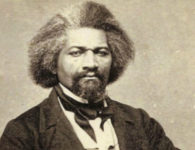In 1964, President Lyndon B. Johnson initiated the Civil Rights Act and Congress passed it in response to the black rights movement and other social protests of the period. Shortly thereafter, however, it became clear that additional civil rights legislation was politically necessary, so in 1966, the Johnson administration focused on passing a fair housing bill. Title IV, the main part of the bill, was meant to outlaw discrimination in housing “by property owners, tract developers, real estate brokers, lending institutions, and all others engaged in the sale, rental, or financing of housing.” However, the bill had weak enforcement provisions and prohibitively expensive and time-consuming procedures for redress of grievances, and it languished in Congress.
In 1968, in a further attempt to introduce an effective fair housing law, Congress passed another Civil Rights Act, whose main provision, Title VIII, imposed a ban on religious and racial discrimination in housing sales and rentals. Nevertheless, Title VIII’s ultimate effectiveness depended on additional legislation, on judicial decisions, and on the resolution of the country’s volatile social situation.
Several campaigns by African Americans and liberals, some of them of long duration, provided the impetus for fair housing legislation and for passage of a number of federal civil rights acts. For example, the National Committee Against Discrimination in Housing, an alliance of civil rights organizations, churches, and trade unions founded in 1950, had played a major role by the mid-1960s in ensuring enactment of municipal ordinances, open housing laws, and administrative housing regulations in sixty major cities in seventeen states.





















No comments